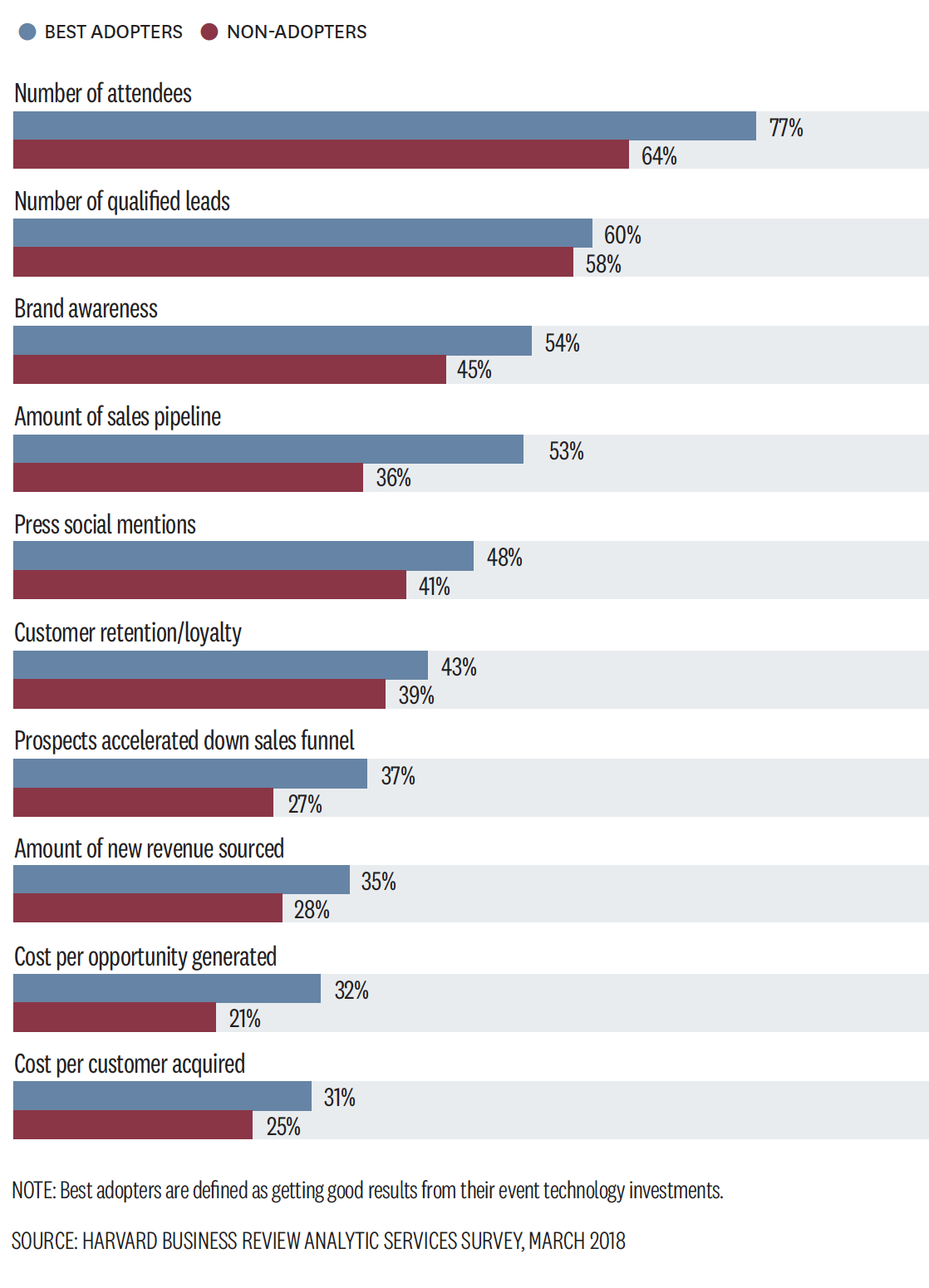The challenge of tracking marketing events’ contribution to the bottom line is tricky business: Was it the email campaign, the online videos, the banner ads, or the events that made the sale? Usually, it’s a bit of everything. But while the effectiveness of digital marketing tactics is often measurable, companies continue to struggle with quantifying the return on investment of their marketing events.
In a new survey conducted by Harvard Business Review Analytic Services and sponsored by event technology company Splash, 739 senior executives from large companies weighed in on their event marketing efforts: the event types they host or sponsor, size of the marketing staff dedicated to events, the performance metrics they measure, and more.
Here are some of the findings from the 13-page report, The Event Marketing Evolution—An Era of Data, Technology, and Revenue Impact:
• 52 percent of respondents believe events drive more business value than other marketing channels; 8 percent say they drive less.
• Less than a quarter of respondents (23 percent) are able to track the ROI of events.
• The percentage of the marketing budget dedicated to events varies widely: 13 percent of respondents spend only 1 percent to 5 percent of their budget on events; 23 percent of respondents spend 6 percent to 20 percent; one third spend more than 20 percent; and 35 percent don’t know.
• One third of respondents have adopted event marketing technology.
• Of the respondents with event marketing technology, one third spend more than $100,000 on it annually.
• Most commonly, companies track “top-of-the-funnel” metrics in connection with their marketing events, such as number of attendees, number of sales leads, and brand awareness. However, among the best practices cited in the report is to look at the “bottom-of-the-funnel” metrics that can help uncover purchasing decisions made and sales closed as a result of events.
This chart from the report, below, reveals the most- and least-common performance metrics that respondents track at events, comparing those who “get good results from their event technology investments” and those who have not adopted an event technology platform.
Performance Metrics Respondents Track at Events





